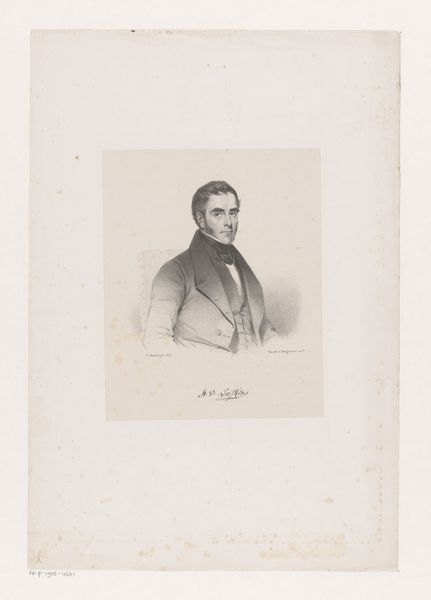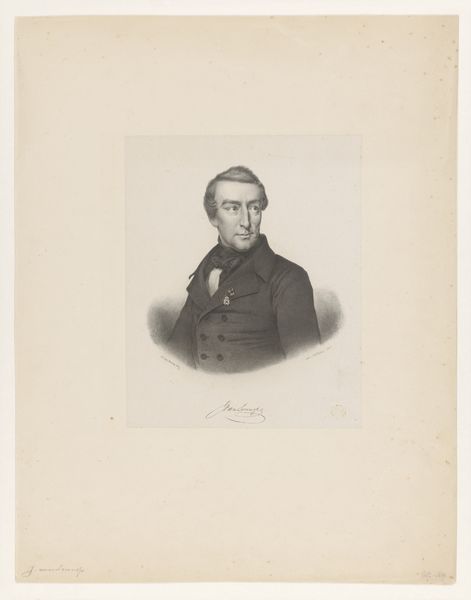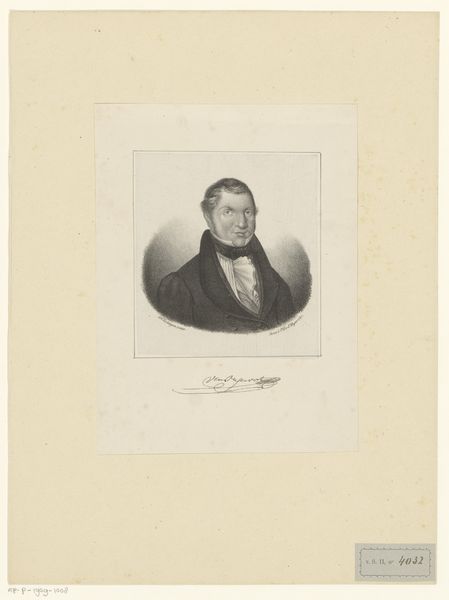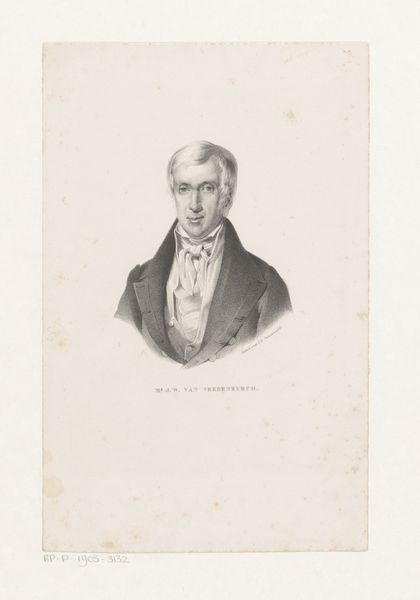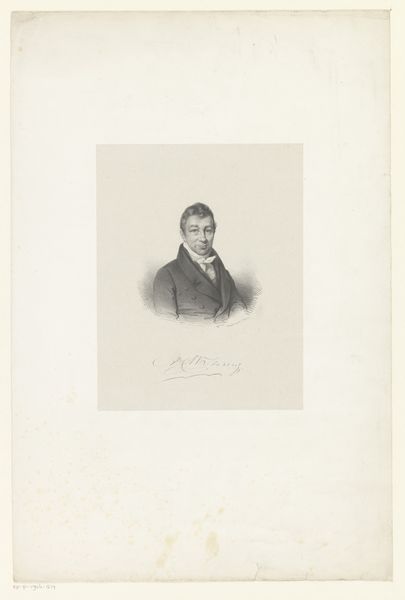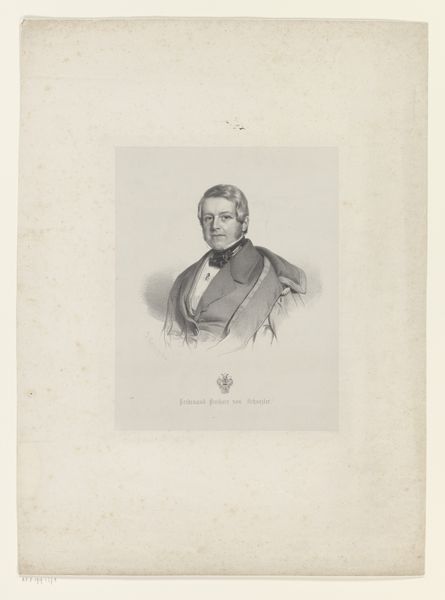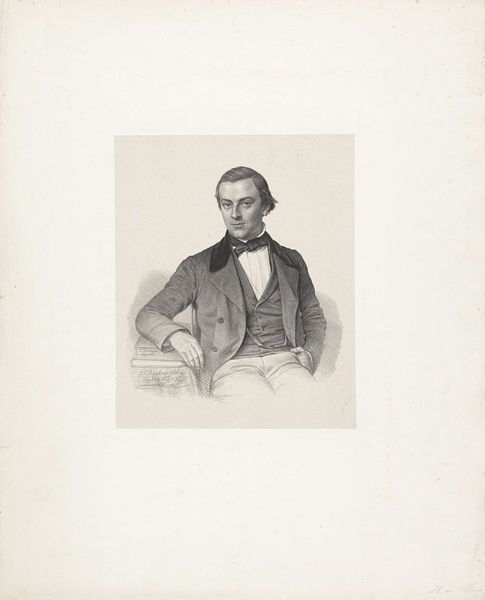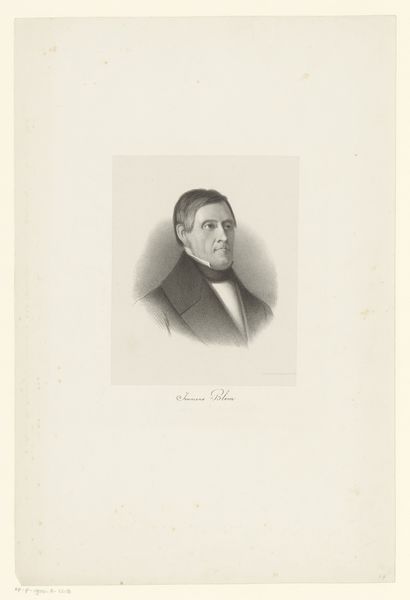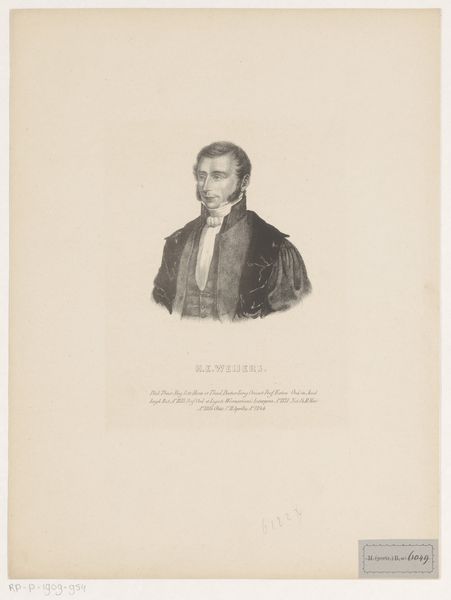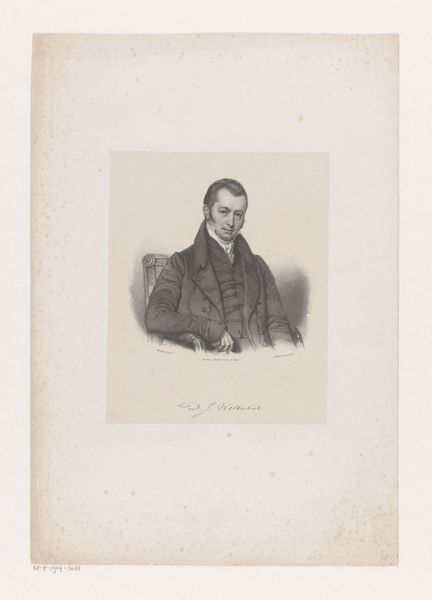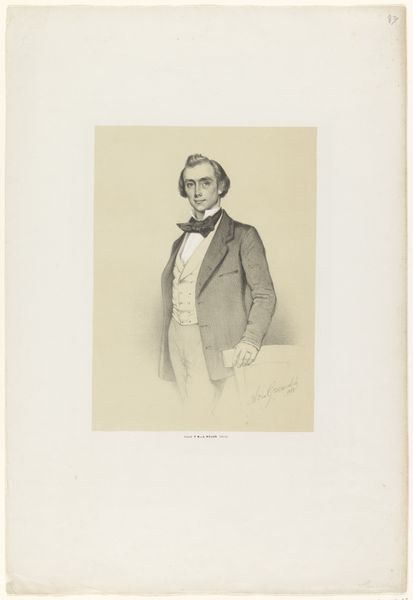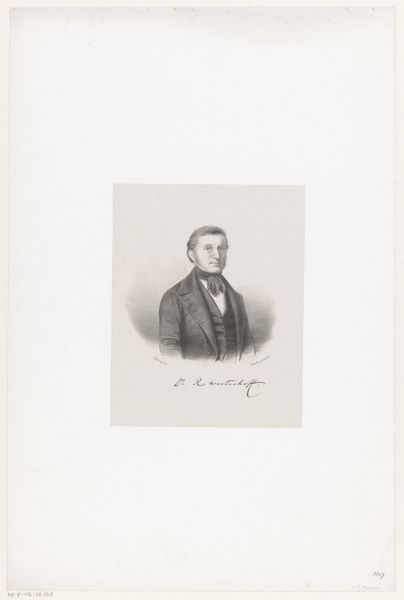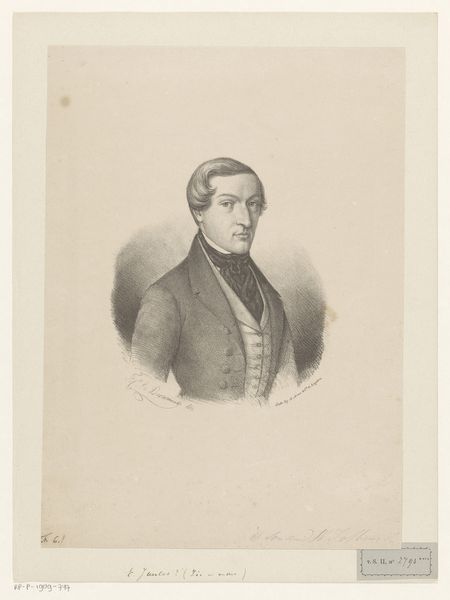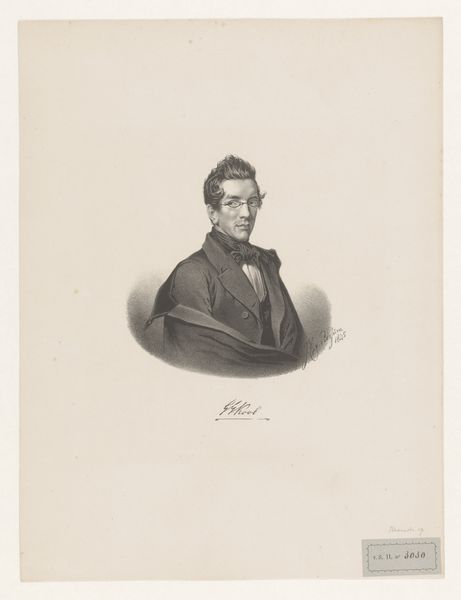
drawing, print, pencil
#
portrait
#
drawing
#
light pencil work
#
neoclassicism
# print
#
old engraving style
#
pencil
#
limited contrast and shading
#
academic-art
#
realism
Dimensions: height 320 mm, width 235 mm
Copyright: Rijks Museum: Open Domain
Curator: Oh, my first impression is of delicate sadness, like a fading daguerreotype. Editor: Indeed, the portrait you're referencing, "Portret van Taco Roorda," created in 1841 by Jan Wendel Gerstenhauer Zimmerman, captures a particular kind of Romantic sensibility that was highly esteemed. It’s currently held here at the Rijksmuseum. Curator: Yes! It’s so light, almost airy, with its pencil strokes. He appears both present and fleeting, a soul caught between worlds, like someone startled in the middle of a dream. What medium does this artist use, besides pencils? Editor: It’s primarily pencil drawing. Zimmerman achieved remarkable tonal variations with subtle gradations of graphite and some engraving styles, creating a compelling image that would've been easily reproduced as prints. Such prints served an important function, circulating images of public figures in the 19th century, cementing their status and influencing public perception. Curator: Do you think he really captured the person? He almost feels like a memory. Is that the effect? Editor: Absolutely. It’s precisely that effect, to capture and somewhat idealize Roorda's likeness. It's about portraying a public persona in the most favourable light, conforming to conventions of the day for representing figures of status, with hints of neoclassicism, while also revealing an essential "truth." But remember, “truth” in portraiture is always mediated, it is culturally shaped. Curator: So he probably never looked that calm. Life can be complicated and messy, whereas art can be simplified by us. Editor: In a way, that’s exactly the power and purpose of such a piece. A touch of flattering is normal, it helped define legacy. We must interpret each stroke, each shade, within that broader context of 19th-century visual culture. Curator: A poignant image... I still feel he had secrets. Well, art always speaks what it doesn't say, so I'll leave him be. Editor: Quite so! Its enduring appeal lies, in no small measure, in inviting us to unravel its historical threads and explore the subtle interplay of reality, representation, and cultural memory it encapsulates.
Comments
No comments
Be the first to comment and join the conversation on the ultimate creative platform.
